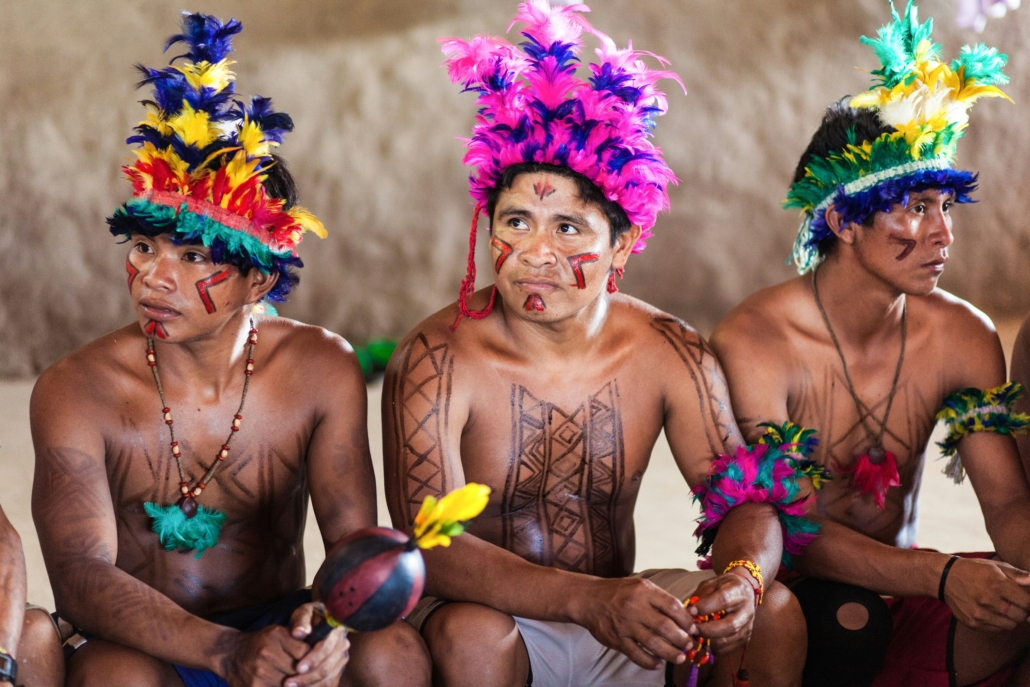Mental Health in Palau
 Palau is a small country in the western Pacific Ocean and one of the first west-pacific islands that people settled, specifically those from Southeast Asia. It is a relatively isolated area surrounded by the ocean, with most of its islands lying within a large, extensive lagoon. With about 17,600 people, there is a great sense of community on the island, the people well-known for their hospitality and welcoming nature. Although the island is very healthy with a great ecosystem and marine environment, and the people have created a strong, invigorating community, mental health in Palau is still unstable due to the lack of specialized care.
Palau is a small country in the western Pacific Ocean and one of the first west-pacific islands that people settled, specifically those from Southeast Asia. It is a relatively isolated area surrounded by the ocean, with most of its islands lying within a large, extensive lagoon. With about 17,600 people, there is a great sense of community on the island, the people well-known for their hospitality and welcoming nature. Although the island is very healthy with a great ecosystem and marine environment, and the people have created a strong, invigorating community, mental health in Palau is still unstable due to the lack of specialized care.
The Facts
Depression affects 5.2% of Palau’s adult population, including 6.7% of young adults and 6.5% of elderly adults suffer from depression. This makes up about 920 people out of Palau’s entire population. To put this into perspective, 5.2% of the United States of America’s population is about 16.3 million people.
Anxiety affects 4.3% of adults, 10.5% of young adults and 4.3% of elderly adults suffering from anxiety. Anxiety is significantly more prevalent in young adults compared to any other age group. 4.3% of Palau’s population is about 760 people.
About 2.3% of adults in Palau suffer from suicidal ideation, being significantly more prevalent in young adults. Meanwhile, about 8.5% of young adults and 0.6% of elderly adults suffer from suicidal ideation. Palau also has a high rate of schizophrenia, according to the National Library of Medicine.
Links Between Poverty and Mental Health
While it is often hard to recognize, depression and anxiety have a huge influence on a person’s work ethic. Depression often leads to a lack of motivation, exhaustion, careless attitude and reclusive tendencies. This behavior can prevent a person from keeping a job or pursuing a career, leading a person towards financial issues, and if not helped, can cause a person to slip into poverty.
Anxiety also creates challenges that affect work ethic. Anxiety tampers with energy, concentration and sleep. Oftentimes, it is difficult to make a decision or pay attention to the task at hand, lowering a person’s quality of work. Anxiety may also prevent a person from attending work due to fear of commitment or embarrassment. Similar to depression, this can manifest financial instability and lead to poverty.
Schizophrenia, among all other mental health conditions, is one of the most connected mental illnesses to poverty. A big part of this is due to schizophrenia’s impact on a person’s social life, such as reclusive behavior, trouble communicating and negative effects on social cognition, making employment a difficult task.
Those with poor mental health are more likely to have addictions to drugs and alcohol, another major influence on poverty due to low work performance and work ethic. While poor mental health can be a leading cause for poverty, oftentimes poverty is the cause of poor mental health, increasing stress and hopelessness, often resulting in social rejection and loneliness, making it hard to re-establish financial stability.
Lack of Services
As the country is small and isolated, accessible mental health care is sparse. Psychology is an ambitious field to pursue, and there are only so many people on such a small island who have the ability or desire to join a career in psychology. The further from the main island, the less the population, which further decreases the number of people who are interested or knowledgeable about mental health.
While it is difficult to pinpoint the exact number of behavioral health care professionals in Palau, an interview in 2019 of 17 health care professionals showed that there was only one in behavioral health care.
Current Solutions
Since 2008, when the United Nations Development Programme (UNDP) signed a Standard Basic Assistance Agreement, the UNDP has strengthened health systems, helped address the impacts of COVID-19 and rehabilitated three community health centers. These produce positive influences on mental health in Palau through the creation of stronger, more reliable health centers and helping those who COVID-19 impacted get back on their feet.
UNICEF Pacific Islands heavily focuses on children’s education and health care. It originated in 1997 and has made strong efforts to help children lead a good life. It helps not only Palau but also the entirety of the Pacific Islands. UNICEF Pacific Islands provide mental health assistance in emergency settings, and is working to integrate mental health into education and have established the Global Coalition for Youth Mental Health.
Since Palau gained its independence in 1994 and established diplomatic relations with the United States of America, the U.S. has provided a lot of government and economic assistance. Currently, the United States provides financial aid through the Compact of Free Association (COFA), which can be used to fund health care systems, education and take care of Palau’s architecture and environment, crucial for Palauans’ mental and physical health.
Looking Ahead
With the current help of these organizations and Palau’s already thriving community and healthy environment, the people can continue to improve and stabilize mental health through community support, providing a sense of belonging and safety that encourages people to speak out and advocate for mental health in Palau.
– Sevyn Whatley
Sevyn is based in Toronto, Ontario, Canada and focuses on Global Health for The Borgen Project.
Photo: Unsplash
